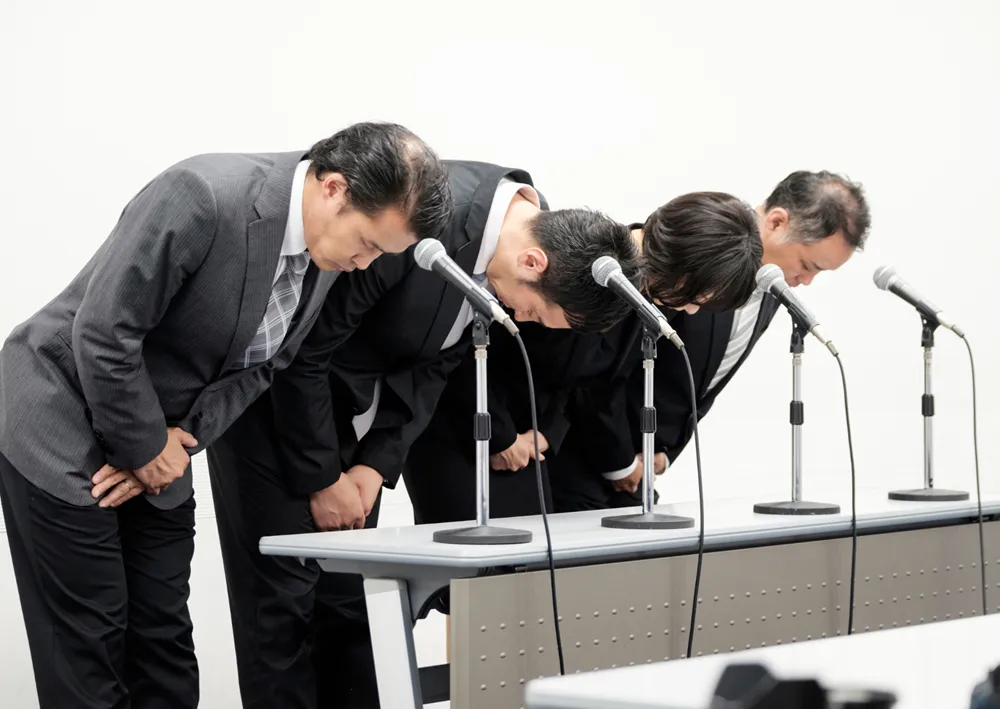May 21, 2024
Why is Firing Employees Uncommon in Japanese Corporations?
Why Japanese Corporations Rarely Terminate Employees: Exploring the Cultural and Organizational Factors
Discover the unique reasons behind why Japanese corporations rarely fire employees, examining cultural and organizational factors that contribute to this phenomenon.
Starting a business in Japan presents a unique set of challenges, especially when it comes to managing your workforce. Japanese labor laws are among the most stringent in the world, making the dismissal of regular employees particularly difficult due to comprehensive legal protections and deeply rooted cultural practices.
Understanding these complexities—from the rigorous requirements of the Labor Standards Act to the powerful influence of labor unions—can be the key to navigating Japan’s business landscape successfully.
As highlighted in several landmark cases, companies that fail to adhere to these stringent standards often face significant legal and financial repercussions.
This blog post delves into the intricate dynamics of Japan's labor laws, offering invaluable insights for foreign entities aiming to establish a robust and compliant business operation in Japan.
In Japan, dismissing regular employees is challenging due to several legal and social factors. Here are the primary reasons:
- Labor Standards Act and Dismissal Regulations: The Japanese Labor Standards Act strongly protects workers' rights. Specifically:
- Dismissal Restrictions: Under Article 20, employers must provide at least 30 days' notice or pay 30 days' average wage when dismissing a worker.
- Requirement for Justifiable Reasons: Japanese law requires that dismissals must be justified by "reasonable grounds," such as poor business performance or severe misconduct, which must be proven.
- Labor Contract Act and the Doctrine of Abuse of Dismissal Right: Article 16 of the Labor Contract Act prohibits the abuse of dismissal rights. If a dismissal is deemed unreasonable or socially inappropriate, it can be invalidated. Hence, employers must follow careful procedures when dismissing employees.
- Judicial Decisions: Japanese courts often favor employees in dismissal disputes. They scrutinize whether the dismissal reasons and procedures are appropriate. If found unjust, the dismissal can be declared invalid.
- Social Practices and Culture: The traditional Japanese employment system values lifetime employment and seniority-based promotions. This creates an environment where long-term employment is prioritized, and dismissals are avoided to maintain the company's reputation.
- Influence of Labor Unions: In companies with strong labor unions, negotiations regarding dismissals are rigorous. Labor unions protect workers' rights and often oppose dismissals, requiring companies to obtain union agreement in many cases.
These factors collectively make the dismissal of regular employees in Japan particularly difficult. Companies often resort to alternatives like job transfers or voluntary early retirement programs to avoid dismissals.
Cases Where Companies Lost Lawsuits for Unjust Dismissal in Japan
- Hewlett-Packard Japan Case: A former employee of Hewlett-Packard Japan, who was dismissed after 40 days of absence, won a reversal in the second trial. The court found that the company failed to handle workplace harassment allegations appropriately (My News Japan).
- Japan Airlines Restructuring Case: During the corporate reorganization of Japan Airlines, 64 former pilots who were dismissed filed a lawsuit. The Supreme Court ruled in favor of the employees, stating that the company did not justify the necessity for their dismissal (日経COMEMO).
- Mochida Pharmaceutical Case: An employee hired as a marketing manager was dismissed for not performing the expected tasks. The court ruled the dismissal invalid, finding that the company did not provide reasonable grounds for the termination (アトム法律事務所弁護士法人).
- Ford Motor Japan Case: An experienced HR director was hired but dismissed due to alleged lack of competence. The court found the dismissal unjustified, ruling in favor of the employee (アトム法律事務所弁護士法人).
- Major Financial Institution Case: A large financial institution dismissed an employee for poor performance. The court ruled the dismissal invalid, stating that poor performance alone is not a sufficient reason for termination without further justification (VBest).
These examples illustrate that Japanese labor courts frequently rule in favor of employees in dismissal disputes, often resulting in companies having to pay compensation or reinstate the dismissed workers.
Navigating the complexities of Japanese labor laws is crucial for the success of any foreign business entering the Japanese market. By understanding the stringent regulations and cultural nuances that govern employee management, companies can avoid costly legal disputes and foster a harmonious workplace. Japan’s unique blend of legal protections and cultural expectations requires a strategic approach to human resources, emphasizing compliance and respect for traditional employment practices. As you embark on your business journey in Japan, let this knowledge guide your decisions and help you build a resilient, compliant, and successful enterprise. For a deeper dive into specific cases and practical advice, continue exploring our comprehensive resources on establishing and managing your business in Japan.

